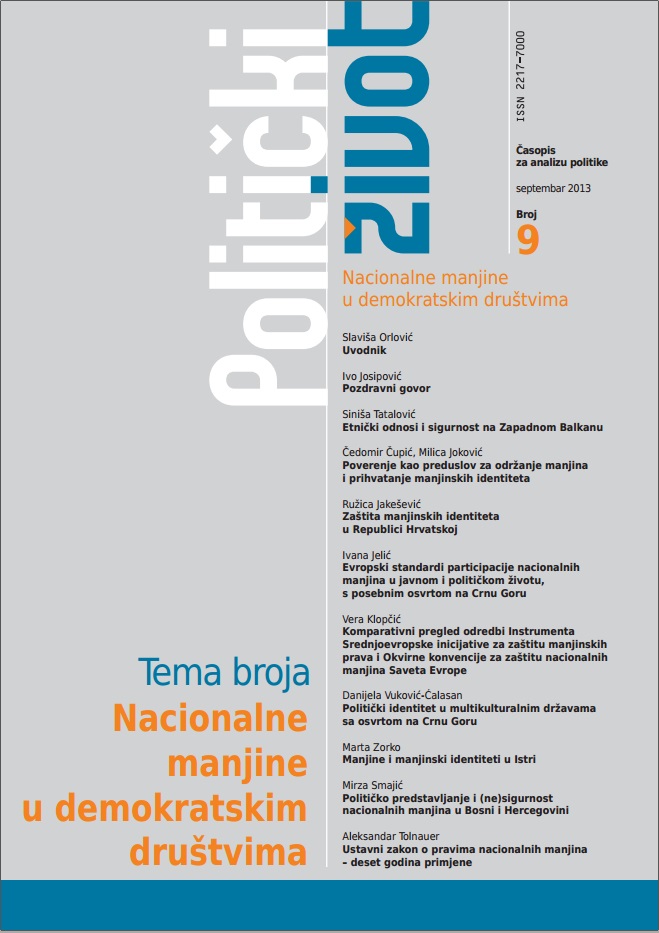Političko predstavljanje i (ne)sigurnost nacionalnih manjina u Bosni i Hercegovini
Political representation and (in)security of national minorities in Bosnia and Herzegovina
Author(s): Mirza SmajićSubject(s): Politics and society, Inter-Ethnic Relations, Ethnic Minorities Studies
Published by: Fakultet političkih nauka Univerziteta u Beogradu
Keywords: Bosnia and Hercegovina; minorities; Dayton Peace Accord; etno-politics
Summary/Abstract: The author in this article presents research and critical analization of political representation of national minorities in Bosnia and Hercegovina, and (non)security as final status of dicriminating articles in Constitution of Bosnia and Hercegovina, in particular Annex 4 of Dayton Peace Accord. Experience that last for 17 years, since the assignment of Dayton Peace Accord, is Bosnia and Hercegovina is facing serious problems in implementation of minority rights, but also human rights in general, which is based on discrimination of citizens and result is all elements of democratisation and implementation of democratic principles and procedures in public are going even more slower. The relevance of this fact is consequence of Annex 4 that makes Bosnia and Hercegovina more ethnical and create a framework for political and social status quo. Main focus of this article is problem of disharmonization of central political institutions with electoral and political system, which results in sistematic discrimination of basic human rights and freedom that creates conditions for nonsecurity and development of all types of security threats. In close connection to this is the environment in Bosnia and Hercegovina is characterised by etno-national politics that harms minority rights in institutional aproach to political power and doesn’t help solving social problems and economic, inner and outer security. The Constitution of Bosnia and Hercegovina is defining the state as democratic with highest standards in protection of human rights and freedom but there is still a question, does Sweden, Germany, Italy and Bosnia and Hercegovina, no matter in history, tradition and culture of this states, have common constitutional determinations or Bosnia and Hercegovina is representing „blocated society“lost in transition?
Journal: Politički život
- Issue Year: 2013
- Issue No: 9
- Page Range: 105-117
- Page Count: 12
- Language: Serbian

